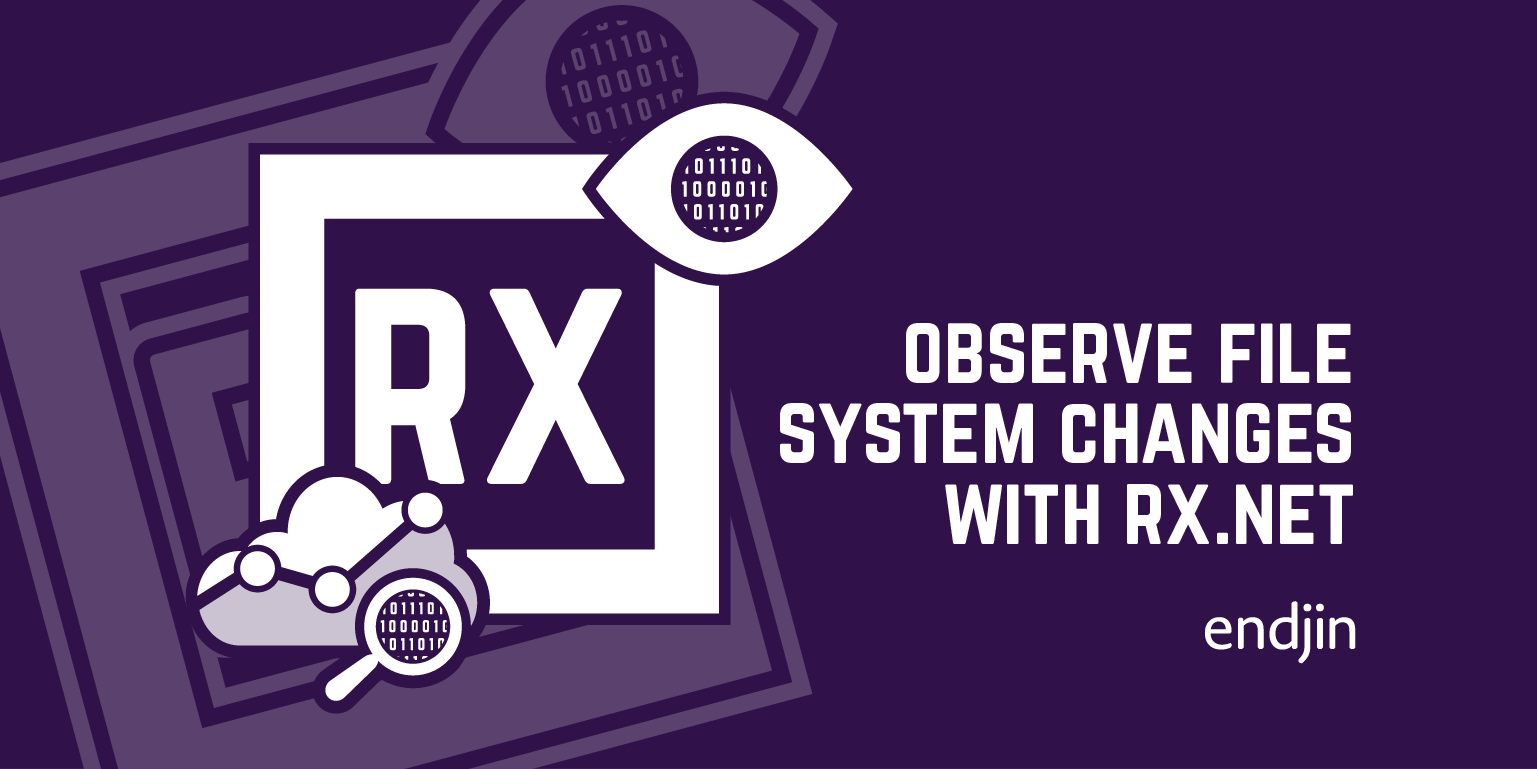Observe File System Changes with Reactive Extensions for .NET

If you're looking for a seamless way to monitor file system changes in .NET applications, Reactive Extensions (Rx) could be the solution you've been searching for. This article explores how to use Rx to transform FileSystemWatcher events into a powerful and straightforward event stream, capable of handling file system idiosyncrasies.
Traditionally, FileSystemWatcher events are prone to some idiosyncrasies that could complicate your code. For instance, when using the 'Changed' event, you might receive multiple events for a single change. However, by leveraging Rx, you can transform FileSystemWatcher's events into an event stream, allowing you to filter, group, and aggregate data with ease. The powerful stream-based interface provided by Rx simplifies the code and minimizes edge-case handling.
This article provides a practical demonstration of how to use Rx to create a FileSystemWatcher event stream. The code in this article is written in C#, and snippets are included as illustrations of the concepts covered. You'll also learn how to apply several operators to the event stream, such as buffering, grouping, and time-based transformations.
By using Reactive Extensions, you can easily observe file system changes in your .NET applications without worrying about the complexities that come with typical FileSystemWatcher events. So, if you're working on an application that requires monitoring file system changes, this article is your go-to guide.
The post Observe File System Changes with Reactive Extensions for .NET appeared first on endjin.
Published on:
Learn moreRelated posts
Json Schema Patterns in .NET - Constraining a base type
This article explores how to use JSON Schema Patterns in .NET when dealing with C# code. Specifically, it focuses on the common pattern of con...
The Heart of Reactive Extensions for .NET
Reactive Extensions for .NET (Rx.NET) is profoundly useful, and developers often end up loving. Why is that? Endjin Technical Fellow Ian Griff...
Introduction to Rx.NET 2nd Edition (2024) book is available for FREE
Learn Reactive Programming with our free book, Introduction to Rx.NET 2nd Edition (2024), available in PDF, EPUB, online, and GitHub.
Modernizing Reactive Extensions for .NET
Endjin are proud to be a .NET Foundation Corporate Sponsor, as we are maintainers of Reactive Extensions for .NET (AKA ReactiveX AKA Rx.NET) w...
High Performance JSON Serialization With Code Generation on C# 11 and .NET 7.0
Looking for ways to improve the parsing and generation of JSON data in your .NET applications? This talk showcases how recent features added t...
Modernizing Rx.NET
Rx.NET is a popular library for event-driven programming with a composable and declarative approach. In this episode, Ian Griffiths, an Rx.NET...
Rx.NET v6.0 Now Available
For the first time since 2020, a new release of Rx.NET is available, supporting .NET 6 and .NET 7.
An overview of Reaqtor AKA Cloud Native Rx
Endjin, a .NET Foundation Corporate Sponsor, maintains Reactive Extensions for .NET and Reaqtor - two key components of the .NET Foundation, a...
Philip Japikse: Professional C# in .NET - Episode 230
In this episode, Philip Japikse, an international speaker, Microsoft MVP, ASPInsider, MCSD, PSM II, PSD, and PST, talks about his journey with...
David Pine: NET Content Development - Episode 223
In this episode of the Architect Tips podcast, David Pine, Developer Relations specialist at Microsoft and expert in Web Technologies, discuss...